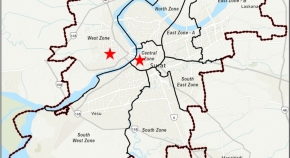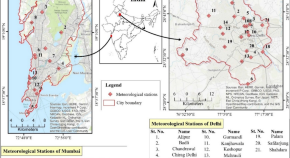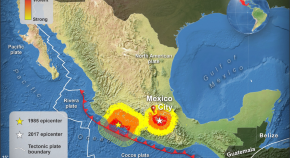Approaching the challenge of multi-phase, multi-hazard volcanic impact assessment through the lens of systemic risk: application to Taranaki Mounga
Authors (first, second and last of 9)

Collection
Over the past years, a substantial amount of research has been conducted to evaluate urban risks stemming from individual natural hazards. However, the assessment of the potential cumulative impacts of multiple hazards has yet to become a mainstream focus in both research and urban management practices. Given that urban risk is a multi-dimensional matrix encompassing various elements at risk (such as people, buildings, and infrastructures), multiple hazards (including geophysical, meteorological, and hydrological), various temporal scales (both present and future points in time), and diverse types of vulnerabilities, it is crucial to deepen our current understanding of their direct and indirect interrelations. Understanding multi-hazard risk can also aid in prioritising resilience actions and serve as the foundation for exploring institutional adjustments to enhance the ability of buildings and populations to cope with the impact of natural hazards.
This Special Session aims to establish a platform for constructive and mutually enriching dialogue within this framework, drawing on cross and multidisciplinary perspectives and contributions from various stakeholders in this field, including academics, policymakers, city planners, and emergency authorities.
University of the West of England (UWE Bristol) Department of Geography and Environmental Management Frenchay Campus, Coldharbour Lane, Bristol BS16 1QY, UK email: Tiago.Ferreira@uwe.ac.uk
Institute of Geography and Spatial Planning (IGOT) University of Lisbon R. Branca Edmée Marques, 1600-276 Lisbon, Portugal







